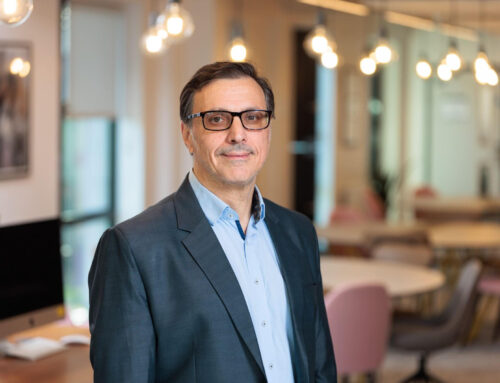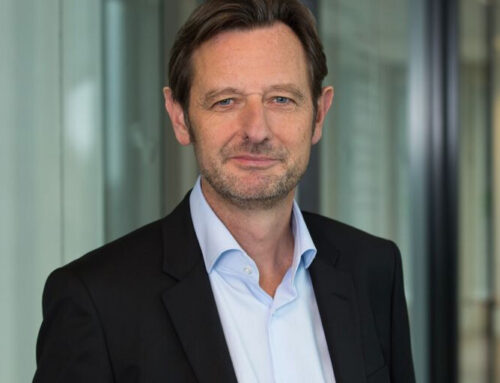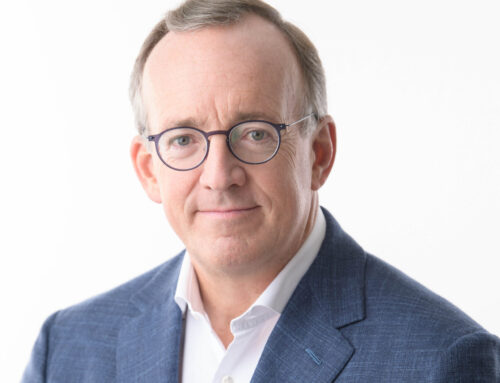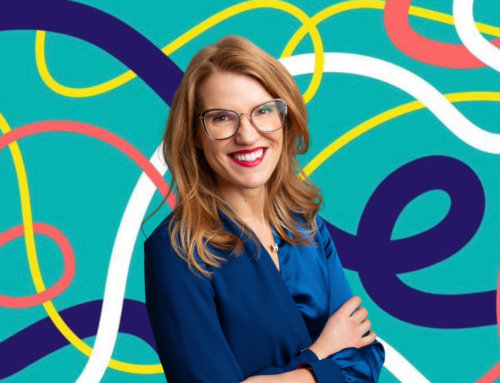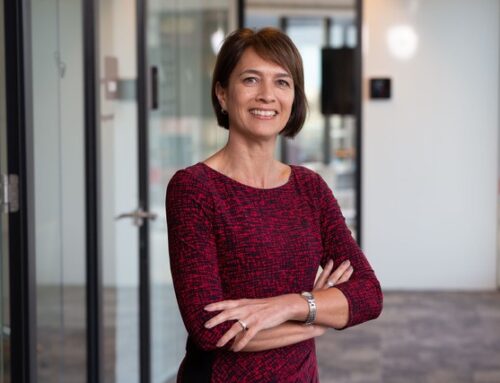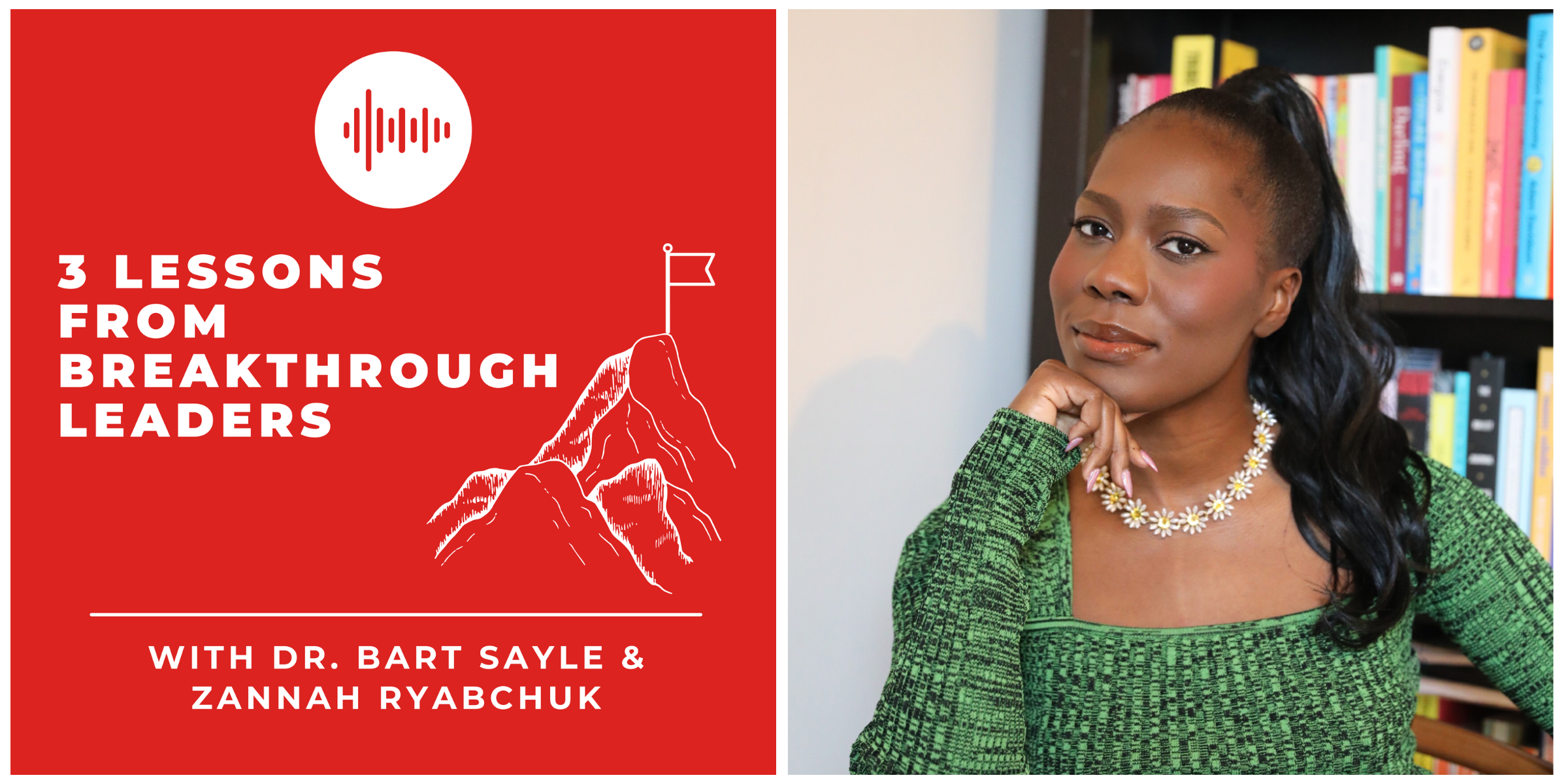 Welcome to the first episode of Series 2! We kick off this new series with an inspiring conversation with a multi-award-winning author and columnist at The Financial Times, Elizabeth Uviebinené.
Welcome to the first episode of Series 2! We kick off this new series with an inspiring conversation with a multi-award-winning author and columnist at The Financial Times, Elizabeth Uviebinené.
We talk about why it’s important to start with ourselves in order to improve the lives of people around us, our businesses, communities, and society.
Elizabeth has published five books, including her critically acclaimed bestseller Slay In Your Lane, The Black Girl Bible, and her vision of a better working future in The Reset: Ideas to change how we work and live. She is now building Storia, a network-driven guided journaling app.
Elizabeth was awarded Ad Age’s 2021 Leading Women in Europe, a Marie Claire Future Shaper and the Groucho Maverick Award for being a ‘culturally progressive innovator’. You can follow Elizabeth on her LinkedIn.
Listen to the S2 E1 ‘Finding Your Personal Power’ with Elizabeth Uviebinené
You will learn these 3 lessons from Elizabeth:
- Why knowing your identity matters
- How to unlearn “helplessness” and use your personal power
- You need a compass within the chaos
This podcast episode was recorded in the winter of 2022/2023.
If you enjoyed this episode, make sure you subscribe to this podcast and please do leave us a review and rating on your player of choice. We will be updating you on upcoming series on our social media so remember to follow us.
Transcript of the episode
Zannah Ryabchuk
Hello and welcome to the second series of 3 Lessons from Breakthrough Leaders with me Zannah Ryabchuk, CEO of Breakthrough Global.
Dr. Bart Sayle
And with me, Bart Sayle, founder of Breakthrough Global, where we’ve spent the past 30 years developing the breakthrough methodology to help transform companies and people looking to reach their highest level.
Zannah Ryabchuk
And this podcast is all about giving you insider tips, and the know how from the world’s foremost leaders and creative talents to sitting their knowledge and experience into three lessons, which we guarantee will help you and your companies to unleash your potential. And you can get in touch with us at bartsayle@breakthroughglobal.com to find out more. In today’s episode, we’ll hear from Elizabeth Uviebinené, I first met Elizabeth at a female leadership conference. And I knew that we just had to get her on the show, because there are so many synergies between the work that she’s doing and the work that we do breakthrough. Elizabeth is a multi award winning author, and she’s a columnist at the Financial Times, and she’s published five books, including her critically acclaimed bestseller, slay in your lane, The Black Girl Bible. And she’s got a vision for a better working future with her book, The reset ideas to change how we work and live. She’s now building storia, a network driven guided journaling app. And we’ll talk more about that later in the show. So here are the three lessons that we’ll learn from Elizabeth today. Why knowing your identity matters
Elizabeth Uviebinené
You know two black girls from South London can write a book that speaks to 1000s of people and white men, black men, white women, that should tell you how powerful the teams around identity go deeper than just what meets the eye.
Zannah Ryabchuk
How to unlearn helplessness, and use your personal power?
Elizabeth Uviebinené
There’s just conflict that I could see. And it didn’t matter who I would speak to whether it be you know, a senior leader, or an intern or graduate, this real kind of conflict between how people want to work and how they’re working.
Zannah Ryabchuk
You need a compass within the chaos.
Elizabeth Uviebinené
In a world that tells us you know, focus on yourself, we aren’t collaborating, we aren’t, you know, checking up on each other in a meaningful way.
Dr. Bart Sayle
Lesson one, it’s all starts with your identity. You have many strings to your bow. But for our listeners who may be less familiar with you and your story, can you walk us through your journey to where you are today.
Elizabeth Uviebinené
I grew up in South London, in Peckham. My first work experience when I was 16, was at the Dulwich Picture Gallery where I walked in, and I essentially told why I explained that their marketing wasn’t exactly super inclusive for young people, and different of different ethnicities as well. And they took it on with good, you know, good feedback and everything like that. And I ended up doing some posters and some design work and helping them with some of their events. So I did that was that my first work experience. So I always knew I loved marketing, and I loved creativity. But once you finish university, you’ve got to have that struggle, the realistic expectations with what you’d want to do. So I found myself working in a very large, corporate firm, and a bank, in a marketing function. Really enjoyed that. But I guess what I was experiencing at that time, was what most people experienced, are trying to still trying to find your feet in a very large organisation. And she’s off trying to find yourself as well. So I, you know, experienced microaggressions things that I knew were influenced by the fact that I was young, I was black, and I essentially didn’t really understand how to navigate these things. So you know, read books, you know, Sophia Amoruso, Girlboss, which was very popular at the time, and Lean In by Sheryl Sandberg. And I was seeing that people were talking a lot about what it is to be a woman in the workplace. And that was super exciting. Because before then, I didn’t think that conversation was as prevalent but you know, correct me if I’m wrong. It just was a very cultural, it was it was a cultural moment, a cultural reset, where people were talking about, you know, women in leadership in very full force. And in my head, I was like, yeah, we’ll talk about women in leadership, but we’re also talking about particular kind of woman in leadership. How about black women in leadership? How about black women in the workplace? So I had this idea to write a book, but I didn’t want to write it. So one thing about me I’m great at delegating, so I.
Elizabeth Uviebinené
It’s the best way Sometimes that you know, needs masks, so I’m very good at having a, you know, strategic vision and big idea. And I need other people to help fulfil that. So I, you know, my best friend who’s an amazing journalist, one of the best journalists, the country, you’ll meet, okay. I called her one lunchtime. And I said, you know, I know you want to write a book one day, I think your first book should be a book about the workplace for black women. And she said to me, yeah, this is a fantastic idea. And she was on Google while I was saying this to her. And she was like, there’s nothing like this exists. This is crazy. So yeah, long story short, she said to me, Well, this isn’t just going to be a book, it’s gonna be a movement with your marketing brain and the way we, we can work together, we should do this together. And not just, it’d be about work, but it’d be about all facets of a woman’s life. So health and all those other areas. So that became selenium alone, The Black Girl Bible. And that was my first book. And I wrote that while working actually.
Dr. Bart Sayle
I read that book. And one of the things I saw there was, and you’ve probably been told this, that book is not just for black women. Yeah, that book has things for everybody. But also, I could identify with some of the things that you said, particularly when I was in the corporate world as a youngster.
Elizabeth Uviebinené
But no, thank you for saying that. Because I think that that was our aim. But we didn’t realise it was going to, you know, it blew our expectations. We wrote this book for black women. And I think the reason why you could identify with some of the channels, some of the themes in the book, or the stories is what I always say, which is, you know, one of the quotes people say, the more specific and experience, the more universal it is. And I think that is like so true. When it comes to storytelling. I think a lot of the time, we all we all we think that, you know, we’re the only one going through something. But if you know, two black girls from South London, can write a book that speaks to 1000s of people and white men, black men, white women, that should tell you how powerful the themes around identity go deeper than just what it is, what in what meets the eye. So yeah, thank you for that.
Dr. Bart Sayle
What came to me listening to Elizabeth with this is that many young people, or anybody joining a company for the first time, usually spends a lot of time and energy trying to fit in trying to be long. And what we saw from Elizabeth, is that she decided to change things, very courageous, a new job. And she wasn’t afraid to give feedback, and go beyond the feedback and show how things could be improved. And I think that stayed where they’re from that time.
Zannah Ryabchuk
You’re right. But when we think about our human needs, the need for belonging, but also the need to be unique and to be special. What happens when people join an organisation is that they want to belong, they want to fit in, they want to become part of the tribe. And what Elizabeth did was managed to break through that quite early on and hang on to her ability to be unique and to be special. And to utilise that for growth.
Dr. Bart Sayle
So for our listeners, one thing you can do is, when you go into work tomorrow, imagine that you’re there for the very first time. And look at the place with fresh eyes, and see what comes up for you. Lesson 2- agency autonomy, trust emotion.
Elizabeth Uviebinené
So I spent a few years out of the corporate world post slaying your lane, I’d go to so many different workplaces do so many different kinds of like, corporate speaking gigs, and the same themes were coming out around what people wanted to work like this conflict that I could see. And it didn’t matter who I would speak to whether it be you know, a senior leader, or an intern or graduate, this real kind of conflict between how people want to work and how they’re working. And I kind of realised this is real kind of feeling that we don’t have power. And we don’t have agency. And I know that not everyone can leave the workplace to become, you know, to start their own business or write a book or any of those things. But people were crying out for autonomy, trust, agency, and empathy in how they worked. And they didn’t say these things. And it no one said to me, I want more empathy. But the experiences that were that they were describing the stories they would tell me, blooded up to some of these big themes. What I didn’t want to write was another book about how the individual should can work harder in order to reach their goals, but saying that we all need to work in unison. We all need to kind of feed into some of the some of the key themes around agency autonomy trust, and that requires new types of lead. issue that requires us to think about how we, we physically work. So our cities, so themes such as 15 minutes, city themes, such as co working, how can we make better use of our working lives, because we spend a lot of time at work. So for me, I wrote it to have a level of provocation on how the individual can see their work style a bit differently.
Dr. Bart Sayle
There’s some great overlaps between the work that we do, and everything you’ve just talked about. And I think one of the important overlaps is that we work with companies, we have a programme that helps them transform their culture. And, you know, they come to us and we work with them. And it’s, it’s really got a lot of business outcomes. But the programme itself, when it was designed, it also had another part to it. And that was because I’d identified in my corporate life, that a lot of people then gradually became unfulfilled. And it’s because of some of the things that you’re saying. And, and the they didn’t feel the word at the time was empowered. But I think what was happening is the very structure and nature, and even the political system of the corporation, really pushed people into what psychologists called learned helplessness. And so they felt that they had no autonomy, they had no agency, they didn’t really have the power. So when we put the programme together, and as we’ve developed it, if you like, one of the mantras of our programme is start with yourself.
Elizabeth Uviebinené
Yeah, exactly. And we’ve seen the power of many voices coming together as one. And a lot of the time you can you can feel that your you know, your work, you don’t have control. And I’m not saying that everyone needs to be an activist in their workplace. I remember one time I was called an activist at work. And I was like, why an activist? No, I’m not, I’m just, I just have an understanding of, you know, what I want, and use my voice. And I think that people kind of people conflate an activist being an activist with using a voice because so many people feel that they don’t have a voice. I remember one time, I was saying to my manager, back in the day, I was like, you know, I was complaining about this, you know, pushing through this piece of work, that was really difficult. And I was like, yeah, so hard to put, you know, change and exc. And he said to me, Elizabeth, this place is not some sort of like dictatorship, like, it is a it’s, it’s people, the reason why you’re struggling to kind of push through is because you’re not understanding what people want. Everything comes down to people, people management, and all of these things, and understanding of how to help bring people along the journey, then it won’t feel as if you’re getting all these brokers, and that stat totally just switched. That changed my thinking, because I was like, You’re right. This isn’t a faceless person. At the end of this email, this is a person who’s probably a dad, you know, this other person’s probably a mom, probably a sister, probably a cousin. These are people just like me, and they need to be brought along the journey. And the way I do that is using my voice using others. And so it just changed my understanding of things. And I think that a lot of the time, we think that organisations are made up of robots, and no, they’re made up of people and people have at the core of them, these fundamental human emotions.
Zannah Ryabchuk
If you’ve got some advice, maybe for our younger listeners who are starting out in their career, what would that advice be?
Elizabeth Uviebinené
So my advice would be when you enter a new company, or new role, or whatever it is new situation you project, be intentional about building relationships with people, ask all the questions, be super curious. People are talking about themselves, that is the fascist office, we’re fascinated by ourselves as humans. So when you give people the opportunity to do that, they’ll thank you for in various ways. So that is a hack, really spend time in building relationships. And secondly, understand what you want from every situation. It no one’s saying, you know, no one’s saying you’ve got to be a shark. But being able to be intentional about, I’m doing this role, because it helps me do this next, have that clear idea in your head, because, you know, the world is changing, and the only constant is change. So we say So knowing what you’re leveraging to get to the next opportunity will hold you in good stead.
Zannah Ryabchuk
So here, Elizabeth is talking about her book, The reset, where she identifies that by first changing ourselves, we can change culture. And by changing culture, we can shift business community, our cities, and of course, our societies. But it all starts with ourselves.
Dr. Bart Sayle
And what I like about Elizabeth in the podcast is she brings it down to the human level and fundamentally, businesses, humanity, all business is about people. And we can sometimes forget that being in conference rooms, seeing PowerPoint, seeing the business is a thing in itself. But ultimately, it’s about you and me, it’s about people. And Elizabeth really brings that out
Lesson 3, a compass in chaos.
Zannah Ryabchuk
I’d like to move on to the bit about kind of society and loneliness in your book. Because you talk a lot about loneliness, its impact on health, depression, financial inequality, and even kind of suicide. Being the hidden cost of a world too busy to be a society was a phrase that really stuck out to me. It’s just something I think that can often get forgotten in the worrying about the work and individuals and and sometimes even the fact that we’re slightly better off individuals than the majority of people in our society. And you know, it can also seem to get a little bit a little bit lost. So what are you working on now to help tackle this incredibly kind of intersectional issue?
Elizabeth Uviebinené
Yeah, I definitely Everything you said was just, you know, gosh, when I wrote that line, I can’t even it just it thought, like I wrote, like you saying it for like, I’ve heard it for the first time. I was, oh, no, I wrote that. Because, because it honestly, it made me like I actually was overall like my, I felt something when you said that. And I think that’s the cost of like this drive of busyness and not looking at each other. And I think COVID obviously helped us to tap into our communities and people around us in a much more poignant way. So yeah, so currently, I am yeah, building a startup that helps people write themselves better, ultimately, that’s the kind of mission and that’s the, that’s the ambition. And we’re doing that through bringing people together, and helping them express themselves in ways that they haven’t been able to do previously. And how that feeds into this conversation around loneliness. Is that wholesaling around, if you want to go fast, go alone, if you want to go to if you want to go far go together. And I really think that in a world that tells us, you know, focus on the self, you know, self care is all about you. And that’s, you know, there’s a place for that 100%. However, I think we’ve we’ve gone way to the extreme, where we aren’t collaborating, we aren’t, you know, checking up on each other in a meaningful way. And I think that if you look up the majority of right, social media apps are out there. It just drives us apart. There is a real divisiveness. Yeah, so for me, the story arc is a real opportunity to bring people together in a meaningful way. Writing is super powerful. So it’s like how do we help people connect with themselves, but also connect with other people that are around them? So yeah, building this digital product is like, you know, my biggest challenge in my life in a good way, I rise into challenges, but I think that there’s it will hopefully answer questions around how we can do that as a people because the world is crazy. It’s you know, it’s intense. And we people are at the heart of that in terms of like, how do we bring people together? And how do we help them?
Dr. Bart Sayle
Elizabeth, you’re a big journal user, as I am. How does your journaling help you?
Elizabeth Uviebinené
Um, so journaling is something that has always just been the compass within my chaos. Writing helps me clarify my thoughts. It helps me work through certain emotions. And what I will say is, we have various acceptable emotions in our society, it’s okay to be happy. We’re almost everyone wants, you know, wants to be a happy person. It’s okay to be sad. But how about jealous? Is it is it obviously no one wants to be jealous, that’s not bad, but it’s a healthy emotion. Like, it’s, you know, we’re no one’s saying, you know, be envious. There’s the difference. However, I think that if you’re if you have this pang of like jealousy, how do you articulate that to somebody because someone’s gonna think, Oh, my God, you’re really weird. Why? And I understand that, but I and I don’t say that. I just, that’s just one example of we have acceptable motions and means that we don’t get to talk about them, and in a healthy way. So what I love about journaling, and just writing really, you’re able just to it’s a relationship with yourself and just say, I feel like this because of this. You can be so honest, like I always say, my journal hard was all my secrets and what I’m, you know, who aren’t what I’m super honest about my mom. Like those are the so my mom will not like I can call her and just be like, x y, and she will just listen and she’ll tell me I’m the greatest and everything like that. But I am so honest with her. Like I am So honest, like I will, like between her and my journal, they kind of give me that level of release
Zannah Ryabchuk
It’s inspiring to hear Elizabeth talk about how she uses the tool of journaling. To help to mitigate loneliness and other challenges that she faces in her day to day life.
Dr. Bart Sayle
We all need to navigate through the chaos of life. And for that you need navigational tools, you need to know where you are. You need to know where you’re going. And then you can get a pathway to it, Elizabeth to use journaling as one of her key navigational tools. And that’s something that I do. I’ve got many journals spanning the years. And journaling for me is now become a form of meditation. So most mornings, as soon as I wake up, I’ll grab a journal or a piece of paper. And I’ll just start writing stream of consciousness. Sometimes I never go back to it. But the act in itself takes me from sleep to somewhere else. So I recommend that you take up some form of journaling, what it will do, it will ground you in the moment. It will give you insights. And in a way it will plot your journey through life.
Zannah Ryabchuk
Elizbeth it’s time for your hotseat questions. These are our rapid fire questions. Are you ready? Yes. What inspires you in life?
Elizabeth Uviebinené
Being better every single day. However, I like the thought of being a better person. But what inspires me is probably my nieces in order to do that, because I want to create a world where they are thriving. And they can be the best version of themselves.
Zannah Ryabchuk
Oh, that’s so nice. What brings you energy and motivation in your everyday life?
Elizabeth Uviebinené
Coffee, and my best friend, Yomi.
Zannah Ryabchuk
And finish this sentence success is:
Elizabeth Uviebinené
Just being yourself. I just think that it’s the grace your you know, your superpower is the ability to know yourself and live that truth every single day and have accept and have people accept that. So yeah, that’s would be.
Dr. Bart Sayle
Thank you so much, Elizabeth. This has been a joy and a delight to meet you to listen to you particularly thank you. And I’ve just got one message to our, to our listeners out there. Buy her book, The reset now. And if you’ve read it, read it again. The reset by Elizabeth Uviebinene and if everybody read this and started to use some of the insights and principles in it, we would already start to change the world of business.
Elizabeth Uviebinené
No, thank you so much. This is great.
Dr. Bart Sayle
Thank you for joining us for today’s three lessons. And of course a big thank you to you, Elizabeth. Do make sure you hit the subscribe button. And join us each month for three more lessons from breakthrough leaders.
Zannah Ryabchuk
And have you got a question or comment or want to find out more, you can email us at bartsayle@breakthroughglobal.com or connect with us on LinkedIn at Breakthrough global or on Instagram at global breakthrough.
Dr. Bart Sayle
We’d love to hear your own leadership stories. And we’d also love for you to share this episode on your own social media and review and rate this podcast on the player of your choice.
Zannah Ryabchuk
And so once again, thanks to Elizabeth to our production team Julia Soltysova at Breakthrough Global and Robin Leeburn of Fairly Media and of course, thank you for listening.

